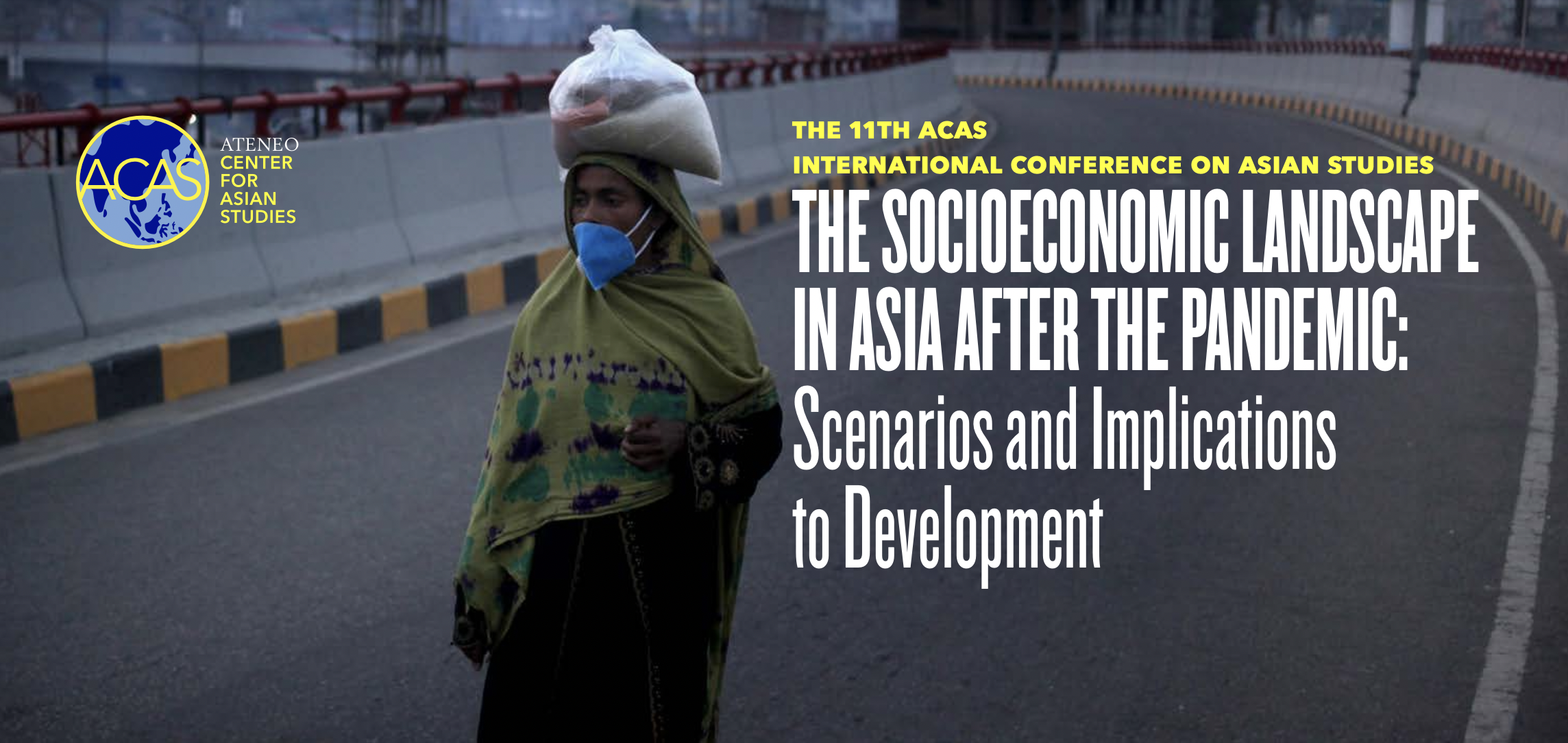
11th ACAS International Conference on Asian Studies
HYBRID ONLINE/ON-SITE CONFERENCE
17-18 NOVEMBER 2022
The COVID-19 pandemic brought to sharp focus many weaknesses of the Asian socioeconomic terrain and sparked a wave of speculations about its likely contours once the pandemic has been brought to heel. Pundits portrayed pre-pandemic societies as characterized by the normalization of wasteful consumption, the devastation of nature, injustice and enmity between fellow human beings, disconnection, and confusion in social values. Asian societies, it is argued, are no exemption, and it is thought that the pandemic, ironically, presents an opportunity to break with the past, and to imagine the world anew. As the Indian novelist Arundhati Roy writes in an essay on her country’s response to the pandemic: “. . . Our minds are still racing back and forth, longing for a return to “normality”, trying to stitch our future to our past and refusing to acknowledge the rupture. But the rupture exists. . . Nothing could be worse than a return to normality.”
Indeed by sheer necessity the pandemic has reshaped nearly all domains of human life and society in Asia and elsewhere. The changes encompass family life and social relationships, work, education, healthcare, entertainment and leisure, commerce, consumption, religion, communication and media, governance and expectation and perceptions of citizenship. With the changed lifestyles, practices and priorities, the pandemic is touted as a turning point, a watershed in the history of mankind, an opportunity to reform and rebuild. Sustainability scholars regard the pandemic as a potential catalyzer of changes to achieve progress in the response to climate change, biodiversity loss, unequal distribution of wealth, consumerism, the future of work, so as to forge a more livable, environmentally sounder, and just society.
With a focus on Asia, the 11th ACAS International Conference on Asian Studies (ACAS-ICAS) joins the discussion on the consequences of the pandemic to development. The conference invites research and conceptual works from a broad range of disciplines encompassing the social sciences, biological and physical sciences, arts and culture and the humanities as well as management and business. It is hoped that these contributions would identify principal issues and bring to the surface solutions and recommendations that could spur Asia towards the attainment of sustainable development goals beyond the pandemic.


